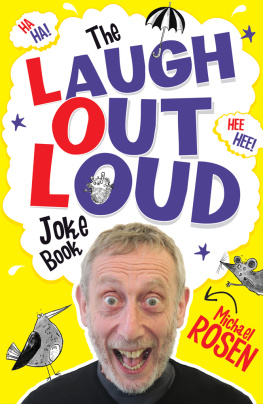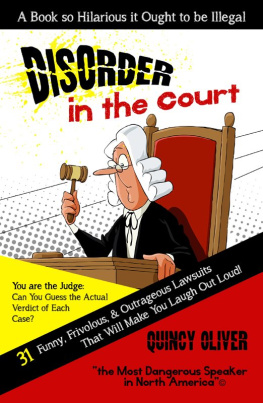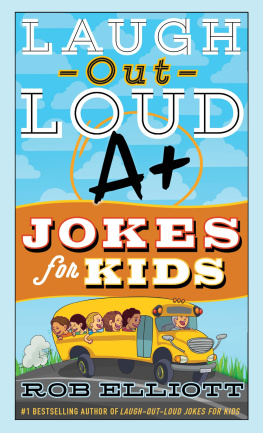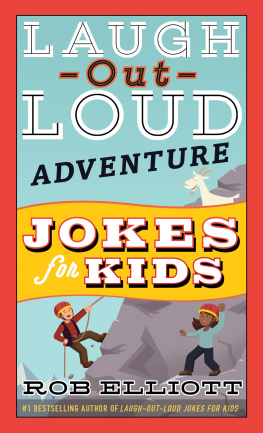Mahood - Lifes a beach
Here you can read online Mahood - Lifes a beach full text of the book (entire story) in english for free. Download pdf and epub, get meaning, cover and reviews about this ebook. year: 2014, publisher: George Mahood, genre: Detective and thriller. Description of the work, (preface) as well as reviews are available. Best literature library LitArk.com created for fans of good reading and offers a wide selection of genres:
Romance novel
Science fiction
Adventure
Detective
Science
History
Home and family
Prose
Art
Politics
Computer
Non-fiction
Religion
Business
Children
Humor
Choose a favorite category and find really read worthwhile books. Enjoy immersion in the world of imagination, feel the emotions of the characters or learn something new for yourself, make an fascinating discovery.

- Book:Lifes a beach
- Author:
- Publisher:George Mahood
- Genre:
- Year:2014
- Rating:5 / 5
- Favourites:Add to favourites
- Your mark:
- 100
- 1
- 2
- 3
- 4
- 5
Lifes a beach: summary, description and annotation
We offer to read an annotation, description, summary or preface (depends on what the author of the book "Lifes a beach" wrote himself). If you haven't found the necessary information about the book — write in the comments, we will try to find it.
Lifes a beach — read online for free the complete book (whole text) full work
Below is the text of the book, divided by pages. System saving the place of the last page read, allows you to conveniently read the book "Lifes a beach" online for free, without having to search again every time where you left off. Put a bookmark, and you can go to the page where you finished reading at any time.
Font size:
Interval:
Bookmark:
Lifes a Beach
George Mahood
Copyright 2014 by George Mahood
All rights reserved. This book or any portion thereof may notbe reproduced or used in any manner whatsoever without the express writtenpermission of the author except for the use of brief quotations in a bookreview.
This edition published 2014 by George Mahood
All of the photographs in this book are available to view inhigh-resolution on Facebook
LIKE George onFacebook
FOLLOW Georgeon Twitter
www.georgemahood.com
For Doug and Chris
JULY
July 1st
I set out at the beginning of January to spend the first half of the yearcelebrating as many of the bizarre, weird and wonderful official holidays aspossible. It was an incredible six months and I learned a lot. Some of ituseful. Most of it less so. But it had been a great deal of fun and I was notready for the experience to end.
On the last day of June (it feels like only yesterday. Oh wait, it was)my wife Rachel suggested that I continue the project for the remaining sixmonths, in order to fully embrace the challenge. I gladly accepted.
The second half of the year promised to be even better than the first.Our house was for sale, a move to Devon was planned, holidays were booked,microadventures were intended, and there would be new schools, new careers andnew beginnings. I could not wait to get started.
July 1st is Second Half of the Year Day - a day to evaluate theyear so far and set new goals. It is a basic concept, but I am surprised itdoesn't get more recognition. January 1st obviously takes all of the attentionwith New Years resolutions and new starts. But why shouldn't the second halfof the year be given equal credit? The temptation is to almost write off makingany changes until the end of the year. As soon as people get to July, theystart saying I can't believe it's July already. Where has the year gone?Hasn't it just flown by.
Well, no it hasn't. Time goes at the same speed that it always has. Asyou grow older, there is a definite feeling that time speeds up. This isbecause the markers by which we measure our time become further apart. When weare children, every second of every minute counts; we want to fill our everywaking moment with some form of excitement or activity. As we grow up andbecome teenagers, we begin making our own plans - scheduling activities on aday-to-day basis - so our concept of time is altered. We then reach adulthoodand our working life begins. The majority of our time is spent working - oftenin a job we don't enjoy - and time becomes measured by the distance between thethings we enjoy, such as the weekends. A year is no longer 365 days; it is just52 weekends. Weekends then start to fly by, and then months, and before youknow it is July 1st, and hasn't the year just flown by?
Rather than reaching July 1st and thinking where has the first halfof the year gone? why not turn it around, and remind yourself that youstill have half of the year - that's ONE HUNDRED AND EIGHTY FOUR DAYS -remaining. And it's all irrelevant anyway, because as one year ends, a new onebegins, and the whole thing continues as before.
The first half of this holiday challenge had forced me to not focus onthe days, weeks, and months. I had filled my time with new experiences andthings I enjoyed, and, as a result, the markers by which my time was measured hadchanged dramatically.
This book was supposed to be a mildly amusing memoir, and it has turnedinto a deep and philosophical rant on theories of time. Thats enough bullshitfrom me. Lets proceed with the nonsense.
July 3rd
During my time at university I had a little career on the side as aProfessional Police Identity Parade Actor. Thats not an official title, butits what I put on my CV. I had heard that you could get paid to appear inpolice line-ups, so I went to the local police station one morning andregistered my details. Leeds is a big city and therefore had plenty ofcriminals, plenty of police line-ups, and plenty of work for ProfessionalPolice Identity Parade Actors like me. Being average height, average build (Iwasnt so biggishly built back then) and with brown hair, I matched the descriptionof a large proportion of the criminals of West Yorkshire.
During my time in Leeds I did about three identity parades per week. Iwas the only student who took part. The others were all decent guys, butself-confessed ex-criminal drug addicts. They were all on first name terms withthe policemen from previous, less professional encounters, and they openlytalked about going to spend their earnings on drugs. We were paid 8 for astandard line-up - even when they got cancelled, which they often did. If they lastedlonger than an hour we got paid overtime. We were paid there and then, in cash,in a little envelope, and we would all walk off in different directions tospend it how we chose. I spent mine on cheap lager - my vice of choice - at the1-a-pint Student Union, which was somehow morally more acceptable than thedrugs bought by the others.
It was an easy way to earn a little extra spending money, and the paradesthemselves were surprisingly enjoyable. We had to sit or stand in a room,facing a one-way mirror. The suspected criminal was then brought into the roomby a police officer and placed in a random seat alongside us. It was verydifficult to not spend the entire time looking at the suspect in the mirror.Often the suspects lawyer would kick up a fuss about the others in the line-upnot bearing any resemblance to the accused, and the parade would have to becancelled.
On two separate occasions I was picked out by the witness. The first timeit happened I was terrified; an officer came in and said: you were identifiedin that parade, I hope youve got a good lawyer, before breaking into laughteralong with all the others. The second time it happened, I knew the protocol,and laughed along with the rest.
Occasionally we would have to do something different like say aparticular phrase, or wear a hat. If the suspect had any notable facial scarsor earrings then we would all have to wear plasters in that exact same spot sothat the person was not picked out simply because of that one characteristic.
During one line-up, the spotlights came on and a voice over the intercom requestedquiet, signifying that the witness was about to appear on the other side of themirror. We all sat in silence for a few seconds until I caught sight of the suspect,sat a couple of seats away from me, winking at himself in the mirror. He thenran his fingers through his hair, pointed to his reflection and said loookinggooood. He was identified immediately by the witness and escorted out of theroom by the policeman.
Today was Compliment Your Mirror Day, and every time I have lookedat myself in a mirror since, it has reminded me of my career as a ProfessionalPolice Identity Parade Actor. Today I looked in the mirror, ran my fingersthrough my hair, pointed at my reflection and said looooking gooood, before headingto the shop.
It was not until I reached the checkout that I remembered it was InternationalPlastic Bag Free Day. I had a small rucksack, but had purchased far moregroceries than I intended. Not wanting to set the second half of the year offto a bad start, I packed the rucksack, filled the pockets of my cargo shorts,stuffed several bulky items up my t-shirt and piled the rest precariously intomy arms.
Are you sure you dont want a bag for all that? asked the cashier.
Nooo! Ill be fine, I said defiantly.
I waddled home looking like the Michelin Man.
We have a cupboard bursting with bags-for-life. Each time it is opened, amountain of them spew out onto the floor and I angrily squeeze them back inbefore wedging the door closed. Whenever Rachel goes to the supermarket, andforgets to take any reusable bags with her, she decides that its noteco-friendly to use carrier bags, so buys several bags-for-life instead. Thishappens every single time she goes shopping.
Font size:
Interval:
Bookmark:
Similar books «Lifes a beach»
Look at similar books to Lifes a beach. We have selected literature similar in name and meaning in the hope of providing readers with more options to find new, interesting, not yet read works.
Discussion, reviews of the book Lifes a beach and just readers' own opinions. Leave your comments, write what you think about the work, its meaning or the main characters. Specify what exactly you liked and what you didn't like, and why you think so.










